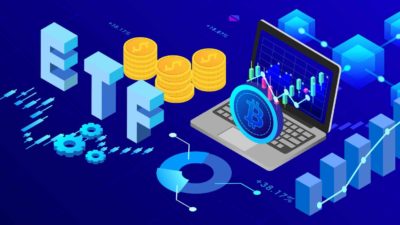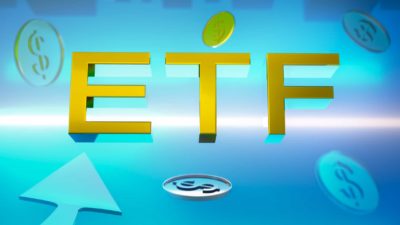The biggest advantage that cryptocurrency advocates have spruiked from the start is that all transactions are decentralised.
That is, there is no 'middle man' facilitating the transfer of Bitcoin (CRYPT: BTC) or Ethereum (CRYPTO: ETH) between the sender and receiver.
No big brother government or government looking over your every move, the libertarians say with glee.
"The benefit is greater access, faster transactions and, in some cases, lower transaction costs," said The Motley Fool US's Adam Levy this week.
"The ability to exchange currency and send money quickly and inexpensively holds a lot of promise for a global economy, and that's why DeFi [decentralised finance] could play a significant role in our financial systems in the future."
What's more, cryptocurrency blockchains don't record anyone's names for ownership. Whoever holds the secure key to the digital coin is the de facto "owner".
So, with no middle man and no names recorded, how would the Australian Tax Office (ATO) know whether you made hundreds, thousands or millions from cryptocurrencies?
The Motley Fool asked a tax expert to settle this once and for all.
Cryptocurrencies are not anonymous
According to H&R Block Inc (NYSE: HRB)'s Australian tax communications director Mark Chapman, one big myth about digital money must be dispelled.
"Cryptocurrency is not really anonymous," he told The Motley Fool.
"The ATO receives data from Australian designated service providers (DSPs) which enable it to identify the name of the cryptocurrency investor, date of birth, addresses, ABN (if applicable), email address, contact phone numbers and social media accounts."
How does the ATO know all this when transactions don't record any of this data?
Australian cryptocurrency exchange platform Coinjar explained in an email to users this week.
"The ATO is very interested in your crypto transactions and will find out about them because they use sophisticated tracking software that has already helped them find hundreds of thousands of non-reporters."
The platform, therefore, reminded its customers that every transaction made in the 2021 financial year is "a taxable event" that must be reported.
"This includes everything from regular selling and trading through to airdrops, staking, ICOs, futures trading and DeFi liquidity mining."
Chapman said that as well as basic personal information, the tax office already has data on individual crypto accounts and transactions — such as linked bank accounts, wallet address, unique identifier, transaction date and time, type of currency, amount, transfer description and account balance.
"The ATO uses all of this to match with investors' tax returns – and if there is a discrepancy, they will write to the investor seeking an explanation."
So there it is — you've been warned. Don't say we didn't tell you so.








